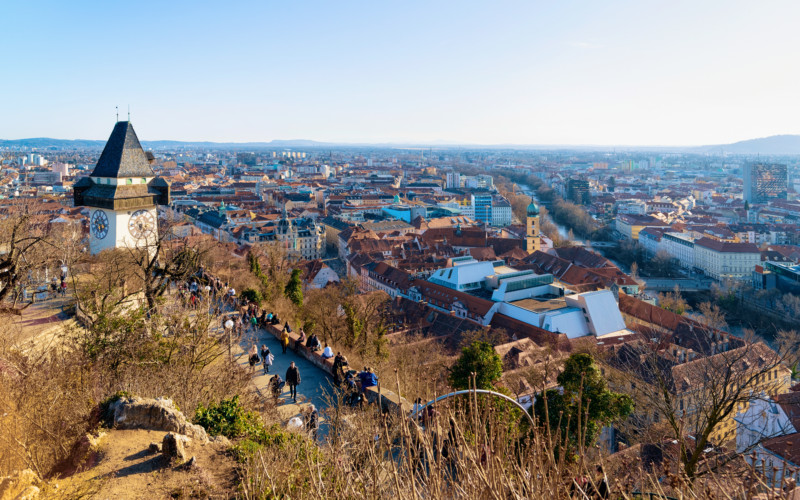
Quality of life in cities is one of the most crucial of all locational factors. Many different studies have been devoted to this topic, attempting to define ‘quality of life’ and make it comparable. At the very least, it exerts a major influence on companies and private individuals when deciding on a location, and for every city authority it is a highly valued benchmark when planning or implementing (socio-) political initiatives.
For these reasons, the City of Graz does not just rely on international studies such as the ‘Expat City Ranking’ – in which, incidentally, Graz occupies 11th place amongst 66 cities, considerably higher than Vienna at place 16. Instead, every five years, it also asks over 20,000 Graz residents how satisfied they are with their lives in Graz, thereby obtaining representative opinions on ‘quality of life in Graz’. Aspects of Graz that expats like include its convenient location in terms of transport infrastructure and the residents’ friendly conversational manner.
The message from the latest findings, from the ‘Quality of Life in Graz 2018’ survey, is as clear as it is welcome: 91.2% of Graz residents ‘enjoy’ or ‘very much enjoy’ living in Graz, and nearly 15% believe that life in Graz will get even better in the next five years.
The study also provides information on the precise factors that make Graz worth living in. Moreover, it records and evaluates both objective and subjective characteristics, divided into 11 groups of indices: local amenities, accommodation situation, living costs, environmental situation, safety, employment situation, leisure and recreation, living together, education and childcare, transport situation, health and service facilities.
At all events, Graz scores well where objective aspects of life quality are concerned, such as education and career opportunities, social status, health, and with respect to leisure activities or opportunities to enjoy nature in the city’s surroundings. These characteristics are objectively measurable, and it is therefore easy to make comparisons with other people, cities or countries. Where subjective characteristics are concerned, Graz’ performance is also cause for celebration. Factors considered here include happiness, satisfaction and other emotions. Of course, each person perceives these differently, and therefore they can only be measured very subjectively.
The highly rated quality of life also explains Graz residents’ strong attachment to their living environment: roughly half of those surveyed state that they would like to become involved in neighbourhood activities to ensure that their quality of life continues to remain at this level in future (or even improves further).
Another source also bears witness to the city of Graz’ high level of future sustainability: in the latest ‘Future Ranking of Austrian Urban Districts 2020’, the Graz area came out top in the ‘Industry and innovation’ category. The Graz region is also a leader in terms of its job market ranking. If all six of the professional fields surveyed in this study are taken into account (economic, innovation and technology policy, education and training, service innovation and digitalisation, clusters and networks, financial advice), overall the Graz region occupies an astounding second place.
High quality of life, satisfied, involved citizens, positive outlooks towards the future: it all adds up to a clear ‘Yes’ for Graz.